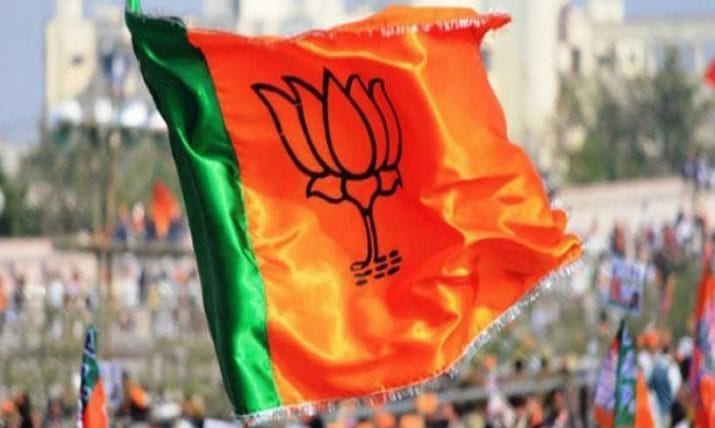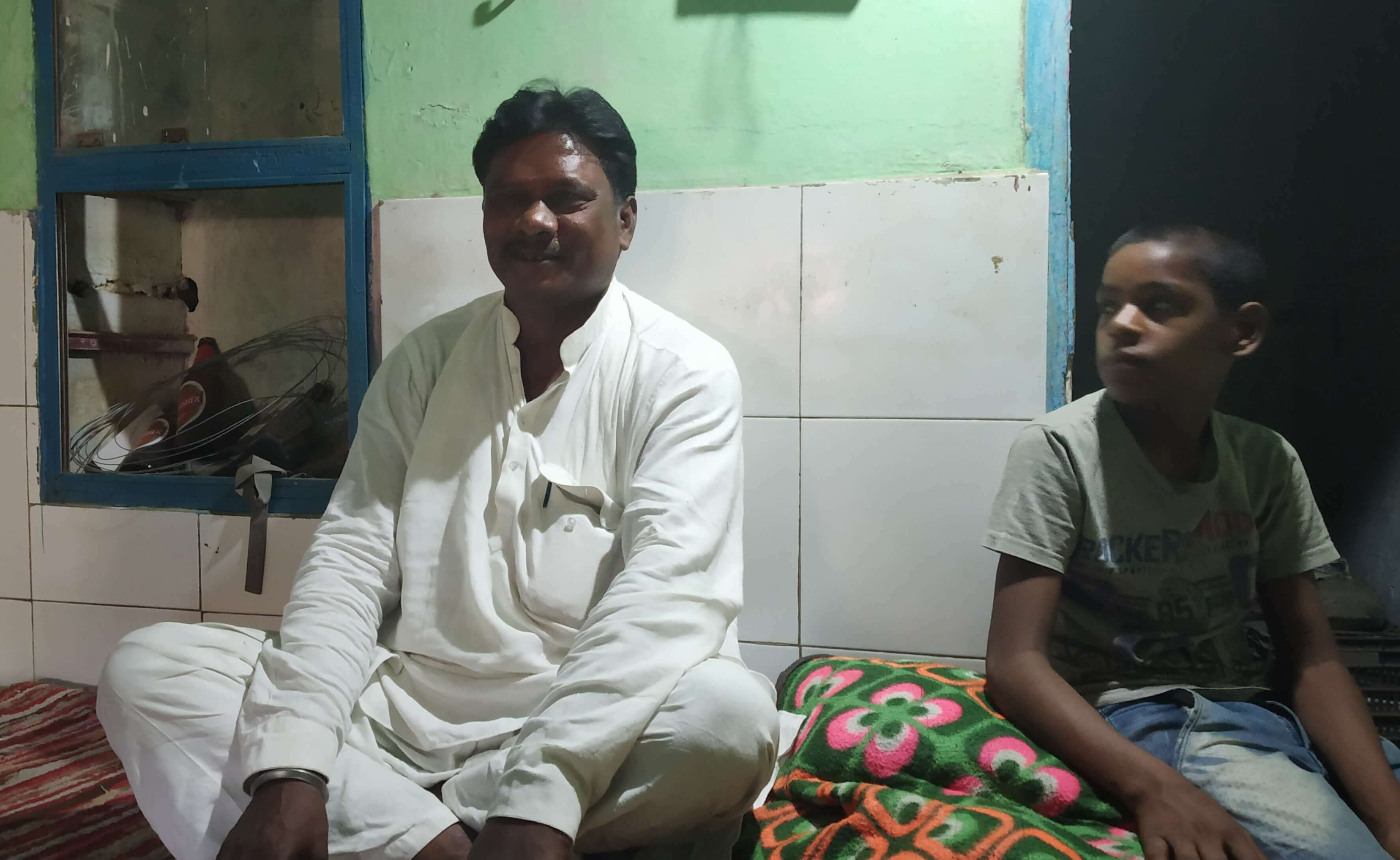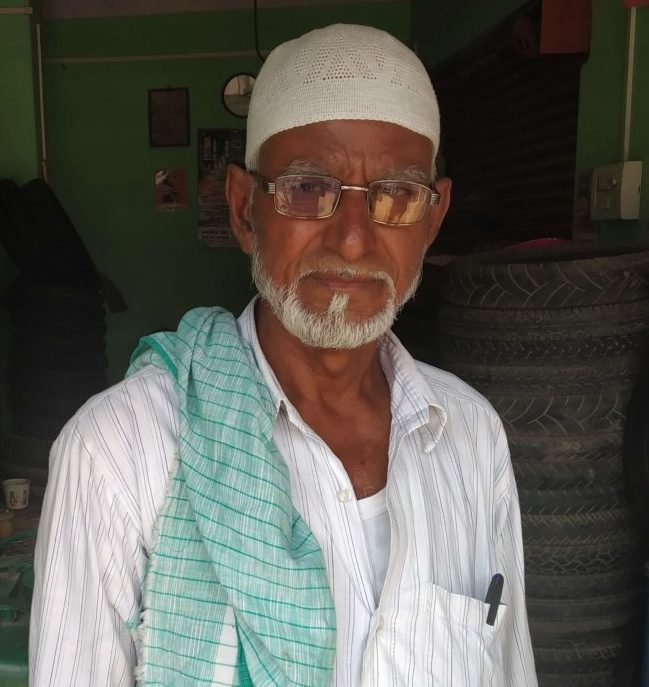
In eastern UP, caste, local equations may trump national issues championed by BJP

It is noon in Chandoli district of Uttar Pradesh. Away from the blazing sun and the cacophony of heavy traffic on the Grand Trunk Road that passes through it, Narayan Sonkar is supine on a cot in his dilapidated office.
The usual suspects are blaring out of a TV set. Oblivious to the din, a few labourers in vests, dhotis and gamchhas (cotton towels) are snoozing in chairs and on the floor. The only sign of recent activity is the presence of empty bottles of the beverage that was once Vijay Mallya’s identity.
Sonkar’s office is close to Mughal Sarai railway station which was recently renamed Pandit Deen Dayal Upadhyaya Junction. A 20-minute drive from Varanasi — Prime Minister Narendra Modi’s constituency — will bring you to this sleepy town where you will not find even a minute’s respite from the sun —there isn’t a single tree, not even an inch of shade.

The effect of the weather is written on every face. Everyone in Sonkar’s office has their skin roasted by the sun and bodies drained by the heat. “This time we are not voting for Narendra Modi,” Sonkar says. The reason: “The BJP promised us a proper market. But we got nothing in spite of voting for it en masse. We still have to work under a burning sun,” Sonkar says.
Sonkar is someone you can safely call a politics junkie. He is fascinatingly well-informed, has a sharp, logical mind and weighs his words carefully. He has an effective counter to every argument on Pulwama, Balakot, nationalism, patriotism, Rafale and almost everything that’s being talked about this election. In 2014, as president of the Fruits and Vegetable Sellers’ Association of Chandoli, he had mobilised 40,000 votes for the BJP. This year, he says, he will talk to his people about the broken promises and ask them to vote on the basis of “performance not slogan”.
Chandoli is the perfect place to test the efficacy of the BJP’s poll strategy this year. The constituency is just about 15 km away from Varanasi and, thus, should be affected by the PM’s decision to contest from Purvanchal. The BJP candidate Mahendra Nath Pandey is its state unit president and the incumbent MP. He is pitted against Sanjay Chauhan of the mahagathbandhan (grand alliance) and Shivkanya Kushwaha of the Congress. So, theoretically, the BJP should be benefitting from a triangular contest and the front runner.
Tight contest
But, the buzz on the ground is that the BJP is caught in a tight contest. There is an undercurrent of anger against Pandey because of promises that were made to people like Sonkar but not kept, the caste arithmetic doesn’t favour the BJP, and the Modi magic fails the moment you leave the urban areas behind.

The combined strength of Muslims, jatavs and yadavs has been buttressed by chauhans who will vote for the mahagathbandhan candidate. A chunk of BJP votes might go to the Congress candidate, again by virtue of her caste. Some “babu sahabs” (Rajputs, as they are called locally) will vote against the BJP because of their traditional rivalry with pandeys — a forward caste that competes with them for political domination.
“The BJP’s hopes of a division in the Muslim vote will be dashed this year. We will vote for whoever is in the best position to beat Pandey. The decision will be taken at the last minute,” says Mohammad Naseer Ansari, who runs an automobile repair shop near Mughal Sarai.
Chandoli quintessentially explains what is happening on the ground in UP. In urban areas, among forward castes and people who got direct benefits from the government — like autorickshaw driver Feroze whom we met in Padya village of Chandoli — there is support for the BJP. But, the party’s hopes of polarising the election are being thwarted by caste equations. On the ground, yadavs, jatavs and Muslims are opposing the BJP. And wherever this grouping is getting the support of some other dominant castes, it is in a position to beat the BJP.
The BJP’s vote share is going down in areas where its incumbents have not performed. Though the BJP is asking the electorate to ignore the candidates and vote for Modi, local factors are indeed working against the party. In constituencies like Chandoli, where the candidate isn’t too popular and where caste math is stacked against it, the BJP is battling on multiple fronts.
Defining factor
In UP, once you move east from Lucknow, caste becomes the defining factor in an election. Emotive issues like nationalism, internal security, muscular Hindutva lose their electoral potency. And the cult of personality fades away, giving diminishing results.
It is for this reason the Congress, in spite of having Sonia and Rahul Gandhi occupy two important seats in Purvanchal (eastern region), did not win outside its bastion. The family’s appeal — even when it used to work on the ground — always got smothered by the politics of caste identities.
Sonkar, the union leader with a brilliant political IQ, is an example of the importance of caste. He says the BJP will be hit in Chandoli for what it did in Delhi with Udit Raj — the East Delhi MP denied party ticket. “He is our leader. Sonkars will not forgive the BJP,” he says.
Udit Raj may or may not be an election issue in Delhi, or rest of India. But in Chandoli, his Sonkar brothers are ready to avenge his humiliation.
That’s eastern UP for you — here caste is the king of good times.

